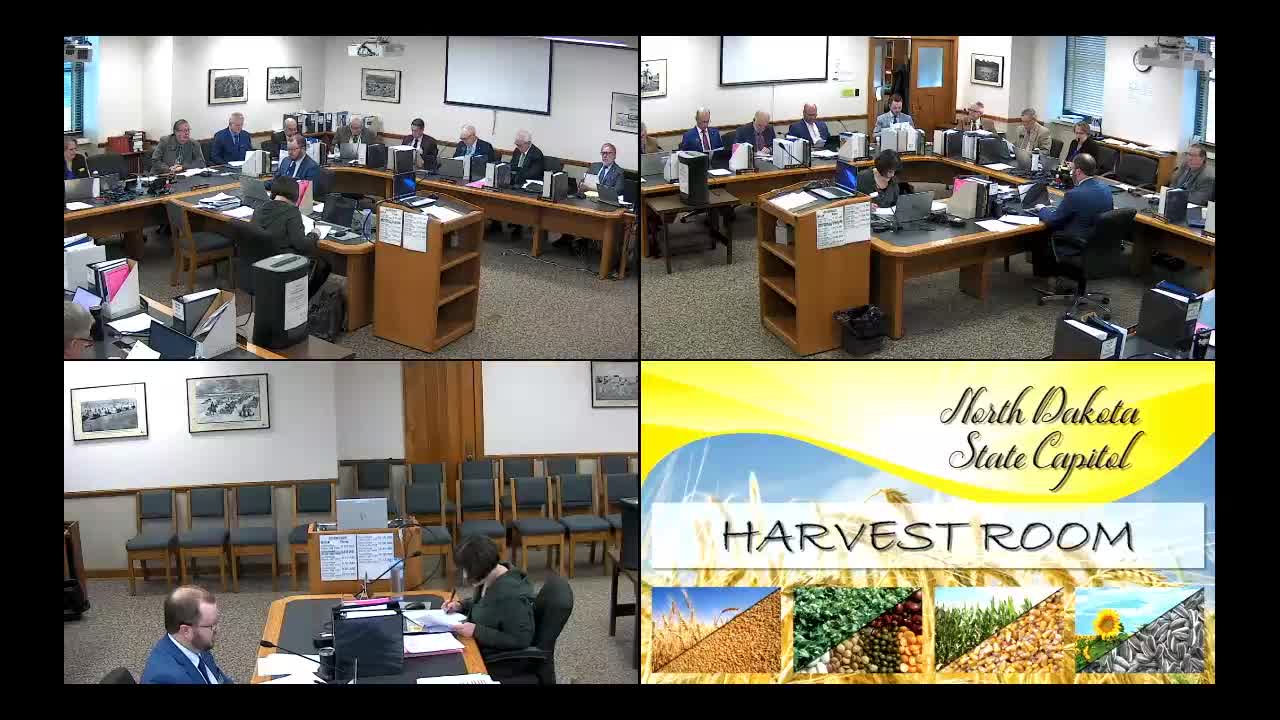Committee trims county fair grant request, adds matching rules and emergency clause
Get AI-powered insights, summaries, and transcripts
Subscribe
Summary
The Appropriations Committee reduced the initial county fair infrastructure grant request, added matching and in-kind rules, approved an emergency clause and forwarded House Bill 15 91 with a do-pass recommendation.
The Appropriations Committee amended House Bill 15 91 to reduce the state’s initial funding request for county fair infrastructure and to set grant administration and matching rules. The committee also approved an emergency clause so funds could be available sooner if projects qualify.
A committee member said the amendment reduces the original request (discussed at $3,000,000 in prior testimony) to a smaller statewide allocation; witnesses and sponsoring senators explained the change reflected a desire to pilot the program and evaluate demand. The Agriculture Department will administer the grants; the agriculture commissioner will create guidelines for distribution, including matching requirements and allowance for in-kind contributions such as volunteer labor or donated trades work.
Under the amended guidelines described to the committee, recipients must provide matching funds from non-state sources at a ratio commonly described as $1 of local match for up to $2 of grant funding; smaller fairs may be permitted a 2-to-1 match or other adjusted match under the commissioner’s criteria. The amendment allows in-kind contributions — for example, volunteer electrician or plumbing work — to count toward the match.
Committee members discussed the per-project award level, which remained at $100,000 in the bill language. Supporters said $100,000 plus matching funds would allow meaningful projects in smaller counties, while opponents warned the fund could be exhausted quickly if demand grows. The motion to reduce the overall request and adopt matching language passed on a roll call announced as “Motion passed 15 0 1.”
Senator Davidson moved a further amendment to add an emergency clause so eligible fairs could receive funds this summer; the committee approved the emergency-clause amendment by roll call (announced as "Motion passed 15 0 1"). The committee then voted to recommend a due pass as amended.
Ending
Sponsors said they expect the Agriculture Commissioner to work with local fairs to develop criteria, and the program will be reviewed in the next biennium to assess demand and consider future funding.
